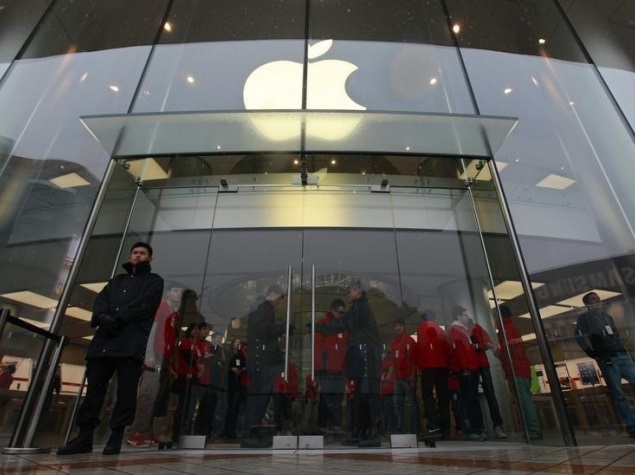- Home
- Others
- Others News
- EU Probing Apple Tax Rulings in Ireland, Luxembourg and the Netherlands
EU Probing Apple Tax Rulings in Ireland, Luxembourg and the Netherlands

The probes focus on whether decisions by authorities in the three European Union member states about corporate tax to be paid by the three companies comply with state aid rules.
Corporate tax avoidance has risen to the top of the international political agenda in recent years amid reports of how companies like Apple and Google use convoluted structures to slash their tax bills.
(Also see: Google, Amazon and Starbucks to face UK lawmakers over tax)
The EU said its investigation follows reports some companies have received significant tax reductions through rulings by national authorities.
Apple said it has not received any selective tax treatment from the Irish authorities, while the Irish government said it was confident that it has not breached state aid rules will defend its position vigorously.
Fiat declined to comment and Starbucks was not immediately available for comment.
Starbucks told a UK parliamentary investigation in 2012 that it received a tax deal in the Netherlands which allowed it to enjoy a "very low" tax rate, while a U.S. Senate probe last year revealed that Apple had sheltered tens of billions of dollars in profits from tax by using Irish companies that had no tax residence anywhere.
Apple in the United States entered into deals with the Irish subsidiaries whereby the Irish units received the rights to certain intellectual property that were subsequently licensed to other group companies, helping ensure almost no tax was reported in countries such as Britain or France.
Apple's Irish arrangement helped it achieve an effective tax rate of just 3.7 percent on its non-U.S. income last year, its annual report shows - a fraction of the prevailing rates in its main overseas markets.
(Also see: Apple, Google's tax avoidance strategies to be scrutinised at European leaders meet)
Tax rulings are used in particular to confirm transfer pricing arrangements, covering prices charged for transactions between various parts of the same group of companies.
The Group of 20 leading nations has launched a drive to develop new rules to tackle abusive transfer pricing and other forms of corporate profit shifting.
© Thomson Reuters 2014
Catch the latest from the Consumer Electronics Show on Gadgets 360, at our CES 2026 hub.
Related Stories
- Samsung Galaxy Unpacked 2025
- ChatGPT
- Redmi Note 14 Pro+
- iPhone 16
- Apple Vision Pro
- Oneplus 12
- OnePlus Nord CE 3 Lite 5G
- iPhone 13
- Xiaomi 14 Pro
- Oppo Find N3
- Tecno Spark Go (2023)
- Realme V30
- Best Phones Under 25000
- Samsung Galaxy S24 Series
- Cryptocurrency
- iQoo 12
- Samsung Galaxy S24 Ultra
- Giottus
- Samsung Galaxy Z Flip 5
- Apple 'Scary Fast'
- Housefull 5
- GoPro Hero 12 Black Review
- Invincible Season 2
- JioGlass
- HD Ready TV
- Laptop Under 50000
- Smartwatch Under 10000
- Latest Mobile Phones
- Compare Phones
- Lava Blaze Duo 3
- Tecno Spark Go 3
- iQOO Z11 Turbo
- OPPO A6c
- Samsung Galaxy A07 5G
- Vivo Y500i
- OnePlus Turbo 6V
- OnePlus Turbo 6
- Lenovo Yoga Slim 7x (2025)
- Lenovo Yoga Slim 7a
- Lenovo Idea Tab Plus
- Realme Pad 3
- Garmin Quatix 8 Pro
- NoiseFit Pro 6R
- Haier H5E Series
- Acerpure Nitro Z Series 100-inch QLED TV
- Asus ROG Ally
- Nintendo Switch Lite
- Haier 1.6 Ton 5 Star Inverter Split AC (HSU19G-MZAID5BN-INV)
- Haier 1.6 Ton 5 Star Inverter Split AC (HSU19G-MZAIM5BN-INV)





![[Sponsored] Haier C90 OLED TV | Dolby Vision IQ, 144Hz OLED and Google TV in Action](https://www.gadgets360.com/static/mobile/images/spacer.png)









